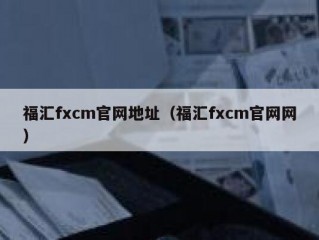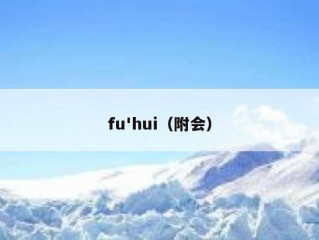人生倒计时
- 今日已经过去小时
- 这周已经过去天
- 本月已经过去天
- 今年已经过去个月
福汇guanwa(福汇官网找不到了)
关于西施的英文资料翻译下 急!!
另外的

(使用浏览器扫码进入在线客服窗口)
复制联系方式
Xi Shi (西施, Pinyin: Xī Shī, c. 506 BC - ?) was one of the renowned Four Beauties of ancient China. She was said to have lived during the end of Spring and Autumn Period in Zhuji, the capital of the ancient State of Yue.
Xi Shi's beauty was said to be so extreme that while laundering her garments in the river, the fish were so dazzled that they forgot how to swim and gradually sunk to the bottom of the river, while the condors were so charmed that many stopped flying and plummeted to the ground to their deaths. (Thus comes the idiom 沉鱼落雁, "To cause fish to sink and condors to drop" to describe someone of great beauty. )
King Gou Jian of Yue, king of Yue, was once imprisoned after a defeat in a war by King Fu Chai of Wu, king of the State of Wu. The state of Yue later became a tribulatory to Wu. Secretly planning his revenge, Gou Jian's minister Wen Zhong suggested training beautiful women and offering them to Fu Chai as a tribute. His other minister, Fan Li, found Xi Shi and Zheng Dan, and gifted them to Fu Chai in 490 BC.
Bewitched by the beauty of Xi Shi and Zheng Dan, Fu Chai forgot all about his state affairs and on their instigation, killed his best advisor, the great general Wu Zixu. Fu Chai even built Guanwa Palace (Palace of Beautiful Women) in an imperial park on the slope of Lingyan Hill, about 15 kilometers west of Suzhou. The strength of Wu dwindled, and in 473 BC Gou Jian launched his strike and put the Wu army to full rout. King Fu Chai lamented that he should have listened to Wu Zixu, and then committed suicide.
In one disputed account of her fate, it was written that Gou Jian ordered Xi Shi to be drowned by being thrown into a lake, to avoid being tempted by her as Fu Chai was.
In legends, after the fall of Wu, Fan Li retired from his minister post and lived with Xi Shi on a fishing boat, roaming like fairies in the misty wilderness of Tai Ho Lake, and no one has seen them ever since.
She is remembered by the Xi Shi Temple, which lies at the foot of the Zhu Lou Hill in the southern part of the city, on the banks of the Huansha River.
The West Lake in Hangzhou is said to be the incarnation of Xi Shi, hence it is also called Xizi Lake, Xizi being another name for Xi Shi, meaning Lady Xi.
There is another well-known figure of unknown origin, probably fictional and parodical, named Dong Shi (东施). The "Dong" in her name means "east", contrasting to Xi Shi's "Xi", which means "west". Apart from her name, she is said to be the exact opposite of Xi Shi in being extremely ugly and, in modern depictions, fat. This in turn has created the saying "Dong Shi imitates a frown" (Xi Shi, being a sickly girl, often had chest pains; it was said that her beauty was most marvellous when she was wincing from the pain), meaning to attempt imitating another work only to show up one's own weaknesses.

冠必正,纽必结,袜与履,俱紧切。置冠服,有定位,勿乱顿,致污秽是什么意思?
01
弟子规 圣人训 首孝悌 次谨信
【解释】弟子规,是圣人的教诲。首先要孝敬父母、友爱兄弟姊妹,其次要谨言慎行、讲求信用。
02
泛爱众 而亲仁 有余力 则学文
【解释】博爱大众,亲近有仁德的人。有多余的时间和精力,学习有益的学问。
03
父母呼 应勿缓 父母命 行勿懒
【解释】父母呼唤,应及时应答,不要拖延迟缓;父母交代的事情,要立刻动身去做,不可拖延或推辞偷懒。
04
父母教 须敬听 父母责 须顺承
【解释】父母的教诲,应该恭敬地聆听;做错了事,受到父母的教育和责备时,应当虚心接受,不可强词夺理。
05
冬则温 夏则凊 晨则省 昏则定
【解释】冬天寒冷时提前为父母温暖被窝,夏天酷热时提前帮父母把床铺扇凉;早晨起床后,先探望父母,向父母请安;晚上伺候父母就寝后,才能入睡。
06
出必告 反必面 居有常 业无变
【解释】出门时告诉父母去向,返家后,面告父母报平安;起居作息,要有规律;做事有常规,不要任意改变,以免父母忧虑;
07
事虽小 勿擅为 苟擅为 子道亏
【解释】事情虽小,也不要擅自作主和行动;擅自行动造成错误,让父母担忧,有失做子女的本分;
08
物虽小 勿私藏 苟私藏 亲心伤
【解释】公物虽小,也不要私自占的为己有;如果私藏公物,缺失品德,就会让父母伤心;
09
亲所好 力为具 亲所恶 谨为去
【解释】父母喜欢的事情,应该全力的去做;父母厌恶的事情,要小心谨慎不要去做(包括自己的坏习惯);
10
身有伤 贻亲忧 德有伤 贻亲羞
【解释】自己的身体受到伤害,父母就会忧虑;做出伤风败德的事,父母亲就会蒙受羞辱;
11
亲爱我 孝何难 亲憎我 孝方贤
【解释】父母喜爱我们的时候,孝顺不是困难的事情;父母不喜欢我们或管教过于严厉的时候,孝顺父母才是难能可贵;
12
亲有过 谏使更 怡吾色 柔吾声
【解释】父母有过错的时候,应小心劝导改过向善;劝导时候要和颜悦色、态度诚恳;
13
谏不入 悦复谏号泣随 挞无怨
【解释】如果父母不高兴时不听规劝,等到父母高兴的时候,继续规劝;父母不听恳劝,我们虽难过的痛哭流涕,也要恳求父母改过;纵然遭遇到责打,也要无怨无悔,以免陷父母于不义,铸成大错;
14
亲有疾 药先尝 昼夜侍 不离床
【解释】父母亲生病时,要替父母先尝药的冷热和安全;要昼夜服侍,一时不离开父母床前;
15
丧三年 常悲咽 居处变 酒肉绝
【解释】父母去世之后,守孝三年,经常追思、感怀父母的养育之恩;生活起居,戒酒戒肉;
16
丧尽礼 祭尽诚 事死者 如事生
【解释】办理父母的丧事要合乎礼节,不可铺张浪费;祭奠父母要诚心诚意;对待去世的父母,要像生前一样恭敬。
17
兄道友 弟道恭 兄弟睦 孝在中
【解释】兄长要友爱弟妹,弟妹要恭敬兄长;兄弟姊妹能和睦相处,父母欢喜,孝道就在其中了;
18
财物轻 怨何生 言语忍 忿自泯
【解释】轻财重义,怨恨就无从生起;言语上包容忍让,忿怒自然消失;
19
或饮食 或坐走 长者先 幼者后
【解释】饮食用餐,就坐行走;长者优先,幼者在后;
20
长呼人 即代叫 人不在 己即到
【解释】长辈呼唤别人,应代为传唤和转告;如果那个人不在,前去转告;
21
称尊长 勿呼名 对尊长 勿现能
【解释】称呼尊者长辈,不可以直接呼姓名;在尊长面前,谦虚有礼,不可炫耀自己的才能;
22
路遇长 疾趋揖 长无言 退恭立
【解释】路上遇见长辈,应恭敬问好;长辈没有说话时,应退后恭敬站立一旁,等待长辈离去;
23
骑下马 乘下车 过犹待 百步余
【解释】骑马或乘车,遇见长辈,应下马或下车问候;等待长者离开百步之远,方可续行;
24
长者立 幼勿坐 长者坐 命乃坐
【解释】长辈站立时,晚辈不可先行就坐;长辈坐定以后,吩咐坐下才可以坐;
25
尊长前 声要低 低不闻 却非宜
【解释】在尊长面前说话,要低声细气;声音太低而听不清楚,也不合适;
26
进必趋 退必迟 问起对 视勿移
【解释】到尊长面前,应快步向前;退回去时,稍慢一些才合礼节;长辈问话时,应当注视聆听,不可以东张西望;
27
事诸父 如事父 事诸兄 如事兄
【解释】对待别人的父辈,要如同对待自己的父亲一般孝顺恭敬;对待别人的兄长,如同对待自己的兄长一样友爱尊敬。
28
朝起早 夜眠迟 老易至 惜此时
【解释】早上要比长辈起的早,晚上要比长辈睡的晚;人生易老,珍惜时光;
29
晨必盥 兼漱口 便溺回 辄净手
【解释】早晨起床,务必洗脸梳妆、刷牙漱口;大小便后,马上洗手;
30
冠必正 纽必结 袜与履 俱紧切
【解释】穿戴仪容整洁,扣好衣服纽扣;袜子穿平整,鞋带应系紧;
31
置冠服 有定位 勿乱顿 致污秽
【解释】放置衣服时,要有固定的位置;衣物不要乱放,避免造成脏乱;
32
衣贵洁 不贵华 上循份 下称家
【解释】服装贵在整洁,不在华丽;穿着上要根据自己的身份,与家庭的情况相称;
33
对饮食 勿拣择 食适可 勿过则
【解释】对待饮食,不要挑食偏食;饮食适量,不要过少过量;
34
年方少 勿饮酒 饮酒醉 最为丑
【解释】少年未成,不可饮酒;酒醉之态,最为丑陋;
35
步从容 立端正 揖深圆 拜恭敬
【解释】走路步伐从容稳重,站立要端正;上门拜访他人时,拱手鞠躬,真诚恭敬;
36
勿践阈 勿跛倚 勿箕踞 勿摇髀
【解释】进门时不要踩在门槛上,站立不要歪斜;坐的时候不可以伸出两腿,腿不可抖动;
37
缓揭帘 勿有声 宽转弯 勿触棱
【解释】进入房间时,揭帘子、开关门的动作轻缓,不要发出声响;在室内行走,宽处转弯,不要撞到物品的棱角,以免受伤;
38
执虚器 如执盈 入虚室 如有人
【解释】拿着空的器具,要像里面装满东西一样,小心谨慎以防跌倒或打破;进入无人的房间,也要像有人在一样,不可以随便;
39
事勿忙 忙多错 勿畏难 勿轻略
【解释】做事不要慌慌张张,忙中容易出错;不要畏惧困难,不可草率行事。
40
斗闹场 绝勿近 邪僻事 绝勿问
【解释】打斗、赌博、色情等不良场所,绝对不要接近;对邪恶的事情,不要好奇过问;
41
将入门 问孰存 将上堂 声必扬
【解释】将要入门之前,应先问:“有人在吗?”进入客厅之前,应先提高声音,让屋里的人知道有人来了;
42
人问谁 对以名 吾与我 不分明
【解释】屋里的人问:“是谁呀?”,应该回答名字;若回答:“是我”,让人无法分辨是谁;
43
用人物 须明求 倘不问 即为偷
【解释】借用别人的物品,要明着向人请求、征得同意;没有征得同意,擅自取用是偷窃行为;
44
借人物 及时还 后有急 借不难
【解释】借人物品,及时归还;以后若有急用,再借不难;
45
凡出言 信为先 诈与妄 奚可焉
【解释】开口说话,诚信为先;欺骗和胡言乱语,不可使用;话说多 不如少 惟其是 勿佞巧
【解释】话多不如话少;说话事实求是,不要妄言取巧;
47
奸巧语 秽污词 市井气 切戒之
【解释】不要讲奸邪取巧的话语、下流肮脏的词语;势利市井之气,千万都要戒之;
48
见未真 勿轻言 知未的 勿轻传
【解释】没有得知真相之前,不要轻易发表意见;不知道真相的传言,不可轻信而再次传播;
49
事非宜 勿轻诺 苟轻诺 进退错
【解释】对不合理的要求,不要轻易答应;如果轻易答应,就会使自己进退两难;
50
凡道字 重且舒 勿急疾 勿模糊
【解释】说话时吐字清楚,语速缓慢;说话不要太快、吐字模糊不清;
51
彼说长 此说短 不关己 莫闲管
【解释】不要当面说别人的长处,背后说别人的长短;不关自己的是非,不要无事生非;
52
见人善 即思齐 纵去远 以渐跻
【解释】看见他人的善举,要立即学习看齐;纵然能力相差很远,也要努力去做,逐渐赶上;
53
见人恶 即内省 有则改 无加警
【解释】看见别人的缺点或不良行为,要反省自己;有则改之,无则加以警惕;
54
唯德学 唯才艺 不如人 当自砺
【解释】唯有品德才学可以与人相比,不如别人,应当自我激励,修养德才;
55
若衣服 若饮食 不如人 勿生戚
【解释】若是穿著饮食不如他人,不要攀比生气;
56
闻过怒 闻誉乐 损友来 益友却
【解释】 如果听到别人的批评就生气,听到别人的称赞就欢喜,坏朋友就会来找你,良朋益友就会离你而去;
57
闻誉恐 闻过欣 直谅士 渐相亲
【解释】听到他人的称赞,唯恐过誉;听到别人的批评,欣然接受,良师益友就会渐渐和你亲近;
58
无心非 名为错 有心非 名为恶
【解释】不是有心故意做错的 ,称为过错;若是明知故犯的,便是罪恶。
59
过能改 归于无 倘揜饰 增一辜
【解释】 知错改过,错误就会消失;如果掩饰过错,就是错上加错; 泛爱众
60
凡是人 皆须爱 天同覆 地同载
【解释】 凡是人类,皆须相亲相爱;因为同顶一片天,同住地球上;
61
行高者 名自高 人所重 非貌高
【解释】德行高尚者,名声自然崇高;人们敬重他,并非他的容貌外表好;
62
才大者 望自大 人所服 非言大
【解释】大德大才者,威望自然高大;人们佩服他,并非他会说大话;
63
己有能 勿自私 人所能 勿轻訾
【解释】自己有能力,不要自私自利,要帮助别人;他人有能力,不要嫉妒,应当欣赏学习;
64
勿谄富 勿骄贫 勿厌故 勿喜新
【解释】不要献媚巴结富有的人,也不要在穷人面前骄傲自大;不要喜新厌旧;
65
人不闲 勿事搅 人不安 勿话扰
【解释】别人正在忙碌,不要去打扰;别人心情不好,不要用闲言闲语去打扰;
66
人有短 切莫揭 人有私 切莫说
【解释】别人的短处,切记不要去揭短;别人自私自利,切记不要去评说;
67
道人善 即是善 人知之 愈思勉
【解释】赞美他人的善行就是行善;别人听到你的称赞,就会更加勉励行善;
68
扬人恶 即是恶 疾之甚 祸且作
【解释】赞扬他人的恶行,就是在做恶事;对别人过分指责批评,会给自己招来灾祸;
69
善相劝 德皆建 过不规 道两亏
【解释】互相劝善,德才共修;有错不能互相规劝,两个人的品德都会亏欠。
70
凡取与 贵分晓 与宜多 取宜少
【解释】取得或给予财物,贵在分明,该取则取,该予则予;给予宜多,取得宜少;
71
将加人 先问己 己不欲 即速已
【解释】要求别人做的事情,先反省问自己愿不愿意做,自己不愿意做的事情,应立刻停止要求,不要强求别人去做;
72
恩欲报 怨欲忘 报怨短 报恩长
【解释】欲报答别人的恩情,就要忘记对别人的怨恨;应该短期抱怨、长期报恩;
73
待婢仆 身贵端 虽贵端 慈而宽
【解释】对待婢女和仆人,自己要品行端正、以身作则;虽然品行端正很重要,但是仁慈宽厚更可贵;
74
势服人 心不然 理服人 方无言
【解释】仗势逼迫别人服从,对方难免口服心不服;以理服人,别人才会心悦诚服。
75
同是人 类不齐 流俗众 仁者稀
【解释】同样是人,善恶正邪,心智高低,良莠不齐;流于世俗的人众多,仁义博爱的人稀少;
76
果仁者 人多畏 言不讳 色不媚
【解释】如果有一位仁德的人出现,大家自然敬畏他;他直言不讳,不会查色献媚;
77
能亲仁 无限好 德日进 过日少
【解释】能够亲近有仁德的人,向他学习,是无限好的事情;他会使我们的德行与日俱增,过错逐日减少;
78
不亲仁 无限害 小人进 百事坏
【解释】不肯亲近仁义君子,就会有无穷的祸害;奸邪小人就会趁虚而入,影响我们,导致整个人生的失败。
79
不力行 但学文 长浮华 成何人
【解释】不能身体力行入则孝、出则悌、谨而信、泛爱众、而亲仁,纵有知识,也只是增长自己华而不实的习气,变成一个不切实际的人;
80
但力行 不学文 任己见 昧理真
【解释】只是身体力行,不肯读书学习,就容易依著自己的偏见做事,也会看不到真理;
81
读书法 有三到 心眼口 信皆要
【解释】读书的方法有三到:眼到、口到、心到,三者缺一不可;
82
方读此 勿慕彼 此未终 彼勿起
【解释】做学问要专一,不能一门学问没搞懂,又想搞其他学问;
83
宽为限 紧用功 功夫到 滞塞通
【解释】读书计划要有宽限,用功要加紧;用功到了,学问就通了;
84
心有疑 随札记 就人问 求确义
【解释】不懂的问题,记下笔记,就向良师益友请教,求的正确答案;
85
房室清 墙壁净 几案洁 笔砚正
【解释】房间整洁,墙壁干净,书桌清洁,笔墨整齐;
86
墨磨偏 心不端 字不敬 心先病
【解释】墨磨偏了,心思不正,写字就不工整,心绪就不好了。
87
列典籍 有定处 读看毕 还原处
【解释】书架取书,读完之后,放归原处;
88
虽有急 卷束齐 有缺坏 就补之
【解释】虽有急事,也要把书本收好再离开,有缺损就要修补;想了解更多关于投资,总裁,领袖,管理,销售,两性关系,家庭,子女教育,健康方面的专业智慧吗?
89
非圣书 屏勿视 蔽聪明 坏心志
【解释】不良书刊,摒弃不看,以免蒙蔽智慧和坏了心志。
90
勿自暴 勿自弃 圣与贤 可驯致
【解释】遇到困难或挫折时,不要自暴自弃,也不必愤世嫉俗,看什么都不顺眼,而应该发奋向上,努力学习,不怕挫折,把失败当作成功之母,任何美好的结局都要经过艰辛的努力才能得到。圣贤的境界虽高,循序渐进也是可以达到的。
END
赞赏
西施的英文介绍 (不要用翻译网翻译)
Xi Shi (西施, Pinyin: Xī Shī, c. 506 BC – ?) was one of the renowned Four Beauties of ancient China. She was said to have lived during the end of Spring and Autumn Period in Zhuji, the capital of the ancient State of Yue.
Xi Shi's beauty was said to be so extreme that while leaning over a balcony to look at the fish in the pond, the fish would be so dazzled that they forgot to swim and gradually sunk away from the surface, birds would forget to fly and fall from the sky, the moon would fade, and flowers would close their petals in shame in comparison to her. (Thus the idiom 沉鱼落雁, 闭月羞花 which is used to compliment someone's beauty.)
King Goujian of Yue, king of Yue, was once imprisoned after a defeat in a war by King Fuchai of Wu, king of the State of Wu. The state of Yue later became a tribulatory to Wu. Secretly planning his revenge, Goujian's minister Wen Zhong suggested training beautiful women and offering them to Fuchai as a tribute. His other minister, Fan Li, found Xi Shi and Zheng Dan, and gifted them to Fuchai in 490 BC.
Bewitched by the beauty of Xi Shi and Zheng Dan, Fuchai forgot all about his state affairs and on their instigation, killed his best advisor, the great general Wu Zixu. Fuchai even built Guanwa Palace (Palace of Beautiful Women) in an imperial park on the slope of Lingyan Hill, about 15 kilometers west of Suzhou. The strength of Wu dwindled, and in 473 BC Goujian launched his strike and put the Wu army to full rout. King Fuchai lamented that he should have listened to Wu Zixu, and then committed suicide.
In one disputed account of her fate, it was written that Goujian ordered Xi Shi to be drowned by being thrown into a lake, to avoid being tempted by her as Fuchai was.
In legends, after the fall of Wu, Fan Li retired from his minister post and lived with Xi Shi on a fishing boat, roaming like fairies in the misty wilderness of Tai Ho Lake, and no one has seen them ever since.
She is remembered by the Xi Shi Temple, which lies at the foot of the Zhu Lou Hill in the southern part of the city, on the banks of the Huansha River.
The West Lake in Hangzhou is said to be the incarnation of Xi Shi, hence it is also called Xizi Lake, Xizi being another name for Xi Shi, meaning Lady Xi.
There is another well-known figure of unknown origin, probably fictional and parodical, named Dong Shi (东施). The "Dong" in her name means "east" contrasting to Xi Shi's "Xi", which means "west". Apart from her name, she is said to be the exact opposite of Xi Shi in being extremely ugly and, in modern depictions, fat. This in turn has created the saying "Dong Shi imitates a frown" (Xi Shi, being a sickly girl, often had chest pains; it was said that her beauty was most marvellous when she was wincing from the pain), meaning to attempt imitating another work only to show up one's own weaknesses.
A tongue twister that works best in Mandarin references XiShi: 西施死时四十四,四十四时西施死。(XīShī sǐ shí sì shí sì, sì shí sì shí XīShī sǐ.) It means Xishi dies at (the age of) forty-four, at (age) forty-four Xishi dies.
生平
苏州木渎古镇西施桥浙江苎萝山下有两个村子,分为东西两村。村中的人大多数姓施,施夷光住在西村,所以大家称其西施。 西施经常与夥伴们在江边浣纱。当时的越王勾践为了报复吴王夫差,便想献上美女郑旦等人迷惑夫差,其中就有西施。
许多百姓为了一睹西施的美貌,都涌到郊外的驿馆去迎候,以致路上塞满了人群。当时有一传闻,说负责招聘西施的越国大夫范蠡传令下去:要看美人的人,必须先交一文钱。於是在驿馆中设了一个钱柜收钱,那钱柜竟然顷刻而满。驿馆停留了三日,所得金钱无数,全部运回了越国以资助国家财政。
越王勾践命乐师教西施歌舞仪态,过了三年,让范蠡带著西施进献给吴王。范大夫见到吴王,跪拜著说:「东海贼臣勾践,感大王之恩德,遍搜境内,得善歌舞者,以供洒扫之役。」 可是伍子胥进言:「臣闻:夏亡以妺喜,殷亡以妲己,周亡以褒姒。夫美女者,亡国之物也,王不可受。」
吴王不听其劝谏,马上把西施收了下来,并在姑苏台建造春宵宫,在灵岩山上建造馆娃宫,还修筑大水池,以供西施嬉戏游玩。夫差对西施宠爱至极,出入都是效仿王妃的派头和排场,夫差自从有了西施以后,就不再理会朝政[来源请求],使勾践有足够的时间修养生息,消灭吴国。
西施的结局有两种说法:
一说是吴灭了以后,勾践夫人见到西施貌美,怕勾践看上她,且吴人认为西施是使得国破家亡的妖孽,於是就将她放进皮袋之中沉於江底。后来在江中发现了一些蛤蜊,人家说那是西施的舌头,故此使得蛤蜊也有西施舌之称。
另一种说法是,西施与范蠡相恋,当吴国灭亡之后,范蠡不要越王的封赏,趁著夜色携西施悄然离去。从此避世太湖,逍遥余生。
至今,在浙江绍兴市诸暨市(旧称暨阳县),仍然有西施殿,越国古都城门等遗迹。
西湖亦称为西子湖。因北宋诗人苏东坡曾作七言绝句咏西湖:
水光潋艳晴方好,山色空蒙雨亦奇。
若把西湖比西子,浓妆淡抹总相宜。
西施的英文介绍 (不要用翻译网翻译),谢谢
Xi Shi (西施, Pinyin: Xī Shī, c. 506 BC – ?) was one of the renowned Four Beauties of ancient China. She was said to have lived during the end of Spring and Autumn Period in Zhuji, the capital of the ancient State of Yue.
Xi Shi's beauty was said to be so extreme that while leaning over a balcony to look at the fish in the pond, the fish would be so dazzled that they forgot to swim and gradually sunk away from the surface, birds would forget to fly and fall from the sky, the moon would fade, and flowers would close their petals in shame in comparison to her. (Thus the idiom 沉鱼落雁, 闭月羞花 which is used to compliment someone's beauty.)
King Goujian of Yue, king of Yue, was once imprisoned after a defeat in a war by King Fuchai of Wu, king of the State of Wu. The state of Yue later became a tribulatory to Wu. Secretly planning his revenge, Goujian's minister Wen Zhong suggested training beautiful women and offering them to Fuchai as a tribute. His other minister, Fan Li, found Xi Shi and Zheng Dan, and gifted them to Fuchai in 490 BC.
Bewitched by the beauty of Xi Shi and Zheng Dan, Fuchai forgot all about his state affairs and on their instigation, killed his best advisor, the great general Wu Zixu. Fuchai even built Guanwa Palace (Palace of Beautiful Women) in an imperial park on the slope of Lingyan Hill, about 15 kilometers west of Suzhou. The strength of Wu dwindled, and in 473 BC Goujian launched his strike and put the Wu army to full rout. King Fuchai lamented that he should have listened to Wu Zixu, and then committed suicide.
In one disputed account of her fate, it was written that Goujian ordered Xi Shi to be drowned by being thrown into a lake, to avoid being tempted by her as Fuchai was.
In legends, after the fall of Wu, Fan Li retired from his minister post and lived with Xi Shi on a fishing boat, roaming like fairies in the misty wilderness of Tai Ho Lake, and no one has seen them ever since.
She is remembered by the Xi Shi Temple, which lies at the foot of the Zhu Lou Hill in the southern part of the city, on the banks of the Huansha River.
The West Lake in Hangzhou is said to be the incarnation of Xi Shi, hence it is also called Xizi Lake, Xizi being another name for Xi Shi, meaning Lady Xi.
There is another well-known figure of unknown origin, probably fictional and parodical, named Dong Shi (东施). The "Dong" in her name means "east" contrasting to Xi Shi's "Xi", which means "west". Apart from her name, she is said to be the exact opposite of Xi Shi in being extremely ugly and, in modern depictions, fat. This in turn has created the saying "Dong Shi imitates a frown" (Xi Shi, being a sickly girl, often had chest pains; it was said that her beauty was most marvellous when she was wincing from the pain), meaning to attempt imitating another work only to show up one's own weaknesses.
A tongue twister that works best in Mandarin references XiShi: 西施死时四十四,四十四时西施死。(XīShī sǐ shí sì shí sì, sì shí sì shí XīShī sǐ.) It means Xishi dies at (the age of) forty-four, at (age) forty-four Xishi dies.
生平
苏州木渎古镇西施桥浙江苎萝山下有两个村子,分为东西两村。村中的人大多数姓施,施夷光住在西村,所以大家称其西施。 西施经常与夥伴们在江边浣纱。当时的越王勾践为了报复吴王夫差,便想献上美女郑旦等人迷惑夫差,其中就有西施。
许多百姓为了一睹西施的美貌,都涌到郊外的驿馆去迎候,以致路上塞满了人群。当时有一传闻,说负责招聘西施的越国大夫范蠡传令下去:要看美人的人,必须先交一文钱。於是在驿馆中设了一个钱柜收钱,那钱柜竟然顷刻而满。驿馆停留了三日,所得金钱无数,全部运回了越国以资助国家财政。
越王勾践命乐师教西施歌舞仪态,过了三年,让范蠡带著西施进献给吴王。范大夫见到吴王,跪拜著说:「东海贼臣勾践,感大王之恩德,遍搜境内,得善歌舞者,以供洒扫之役。」 可是伍子胥进言:「臣闻:夏亡以妺喜,殷亡以妲己,周亡以褒姒。夫美女者,亡国之物也,王不可受。」
吴王不听其劝谏,马上把西施收了下来,并在姑苏台建造春宵宫,在灵岩山上建造馆娃宫,还修筑大水池,以供西施嬉戏游玩。夫差对西施宠爱至极,出入都是效仿王妃的派头和排场,夫差自从有了西施以后,就不再理会朝政[来源请求],使勾践有足够的时间修养生息,消灭吴国。
西施的结局有两种说法:
一说是吴灭了以后,勾践夫人见到西施貌美,怕勾践看上她,且吴人认为西施是使得国破家亡的妖孽,於是就将她放进皮袋之中沉於江底。后来在江中发现了一些蛤蜊,人家说那是西施的舌头,故此使得蛤蜊也有西施舌之称。
另一种说法是,西施与范蠡相恋,当吴国灭亡之后,范蠡不要越王的封赏,趁著夜色携西施悄然离去。从此避世太湖,逍遥余生。
至今,在浙江绍兴市诸暨市(旧称暨阳县),仍然有西施殿,越国古都城门等遗迹。
西湖亦称为西子湖。因北宋诗人苏东坡曾作七言绝句咏西湖:
水光潋艳晴方好,山色空蒙雨亦奇。
若把西湖比西子,浓妆淡抹总相宜。
徐佳莹《身骑白马》闽南语发音
wa xin kia be be
zao san guan
wa gai gua suo yi yo
gue diong wan
fang ha sie liang
mo ren guan
wa yi xin zhi xiu ong bo chuan










